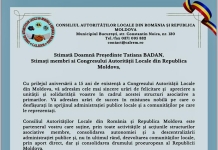New fiscal policy for 2021 by the Ministry of Finance suggests two drastic measures with the negative influence upon the local autonomy and local budgets
- Imposing the ceilings on local taxes
- Eliminating certain local taxes all together
This decision raises rather many questions related both to the nature of such a measure in itself and to its financial justification
- Why doing it during the pandemic crisis? When local governments are in the first line of COVID response after doctors and when their competencies have drastically increased, while the tax collections have significantly diminished?
- Why doing it after all the resolutions and recommendations of the Congress of Local and Regional Authorities of the Council of Europe, after the Road map signed between the Congress, CALM and the government with now the second Road Map to follow up on the under accomplishments of the first one and after the Congress Recommendation 436, all of which explicitly advance the fiscal decentralization as one of the key priorities and accepted national commitment? What kind of decentralization and what kind of local autonomy is that?
- Why doing it after the explicit ruling of the Moldovan Constitutional Court from 2014 against imposing ceilings on local taxes and thus risking not just administrative procedures for not complying with Constitutional Court decision, but potentially even legal charges for the very fact of trying to do so?
- What are the foundations for such a decision? Were carried out any analysis of the real situation? Was business suffocating under the pressure of local taxes? Not under the pressure of national taxes and regulatory practices about which the entire business is permanently complaining and Moldova is being permanently reduced in its ranking of the business climate and of doing business?
- Why doing it when local taxes are rather competitive between the communities especially comparatively with the national taxes which are totally monopolistic and exclusive? When local governments are extra cautious and probably excessively conservative in local fiscal policies being bound by the huge downward pressure upon taxation on behalf of the population?
- Where is the predictability of local budgets in that case? Quite often central authorities mention predictability of business planning, but never about the extreme difficulties which local governments are facing in predictability of local budgets especially during the pandemic crisis?
- Why many of the central governments in Moldova coming to power and not fully understanding the nature of local democracy and local autonomy are starting from the scratch and are always trying to diminish local budgets and touch upon the local revenues? Are those revenues that huge and represent the key problem in the country? As this is already a fourth attempt of introducing the tax ceilings in the very recent past while several of those have finalized with the huge losses for local governments which afterwards when ceilings were declared unconstitutional nobody did recuperate for them?
- What is the motivation and the source of such a decision? Large business as many experts affirm? Or simply misunderstanding of the realities? Or total disrespect of the local autonomy, which among other things is an express pan-European value and a matter of international commitment of the Republic of Moldova based on the European Charter of local self-government fully approved by the country in 1998?









